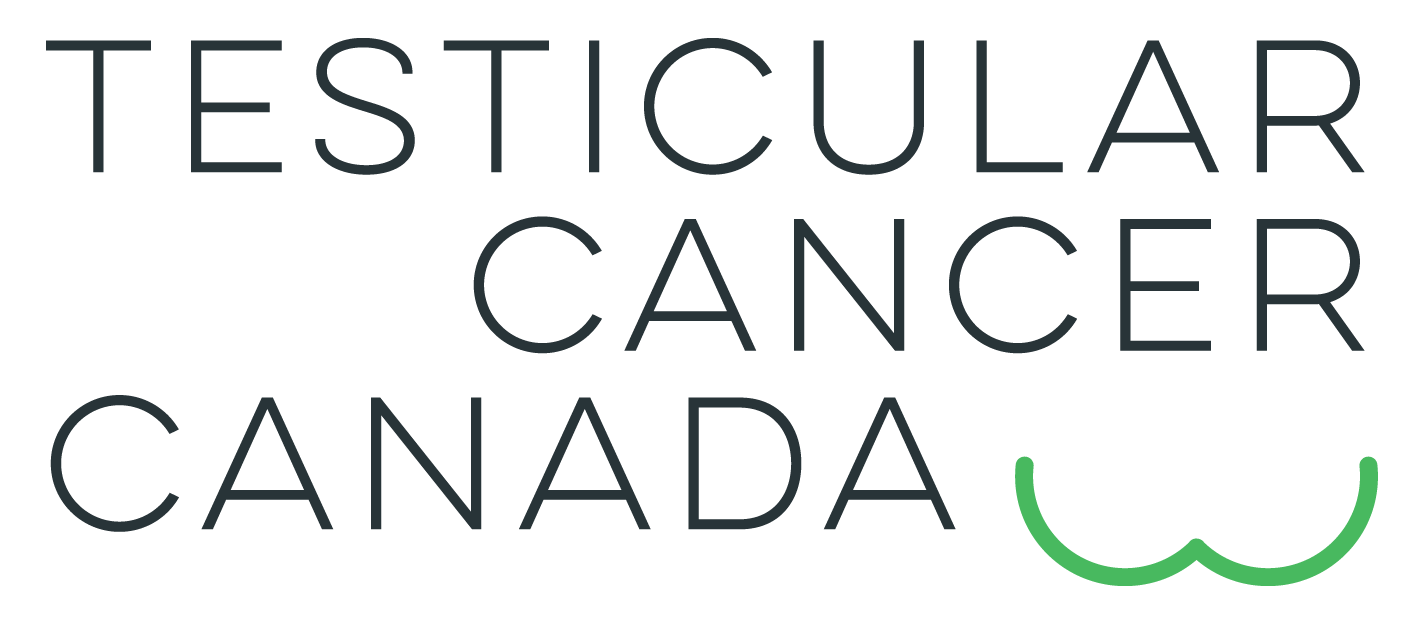Did you say chemo? Why?
Let’s face it: The fact that you asked why? means you are expecting an answer; however, deep down, you may be feeling like bringing your hands to your ears so as to not hear the answer. Take a deep breath for this is normal when facing a serious illness like cancer, and perhaps more so with testicular cancer. Read on and remember, you are not alone feeling this way.
Medically reviewed by Urologic Oncologist Dr. Robert J. Hamilton on 03/20/2022
Prelude
You should know that a swift timeline is common for testicular cancer treatment, and its speed often adds to the stress experienced by newly diagnosed patients and their families. The feeling of being in a ‘bad dream’ is very common. Patients, like you, often find themselves trying to put their emotions on hold while making immediate decisions and dealing with huge amounts of medical information. That is not easy, especially when logic confronts emotions. Trusting yourself, asking questions and sharing your worries with your doctor will help you move from the passenger seat to the front drive seat, with a better understanding of the reasons why.
Why chemotherapy?
The factors that determine what treatment options you will have after your testicle is removed include: the specific type of testicular cancer you have, whether it has spread outside of the testicle, and if so, how far it has spread.
Chemotherapy is considered systemic therapy, meaning that the drug enters the bloodstream and circulates throughout the body to reach and destroy the cancer cells. Hence, it is an effective way to destroy any cancer cells that break off from the main tumor and travel in the bloodstream to lymph nodes or distant organs.
Therefore, you might have chemotherapy to:
help prevent the cancer coming back after you've had surgery to remove a testicle (this is called adjuvant chemotherapy)
treat cancer that has come back (recurrence) after initial treatment
treat cancer that has spread outside your testicle
For testicular cancer, chemotherapy is used mainly for more advanced cases of both non-seminoma and seminoma tumours.
How does it work
Treatment is usually given intravenously with a combination of two or three different drugs. You usually have chemotherapy as a course of several cycles of treatment. A cycle of treatment is the time between 1 round of treatment and the start of another. Usually, the drugs are given for 5 days in a row and then once a week every 21 days. Three or four cycles may be given. The number of treatment cycles you have will depend on the type and stage of your cancer and on how well it responds to the drugs. Your doctor will give you more information.
Before you start chemotherapy, you will need to have blood tests to make sure it’s safe to start treatment. You will have these either a few days before or on the day you start treatment. You will then have blood tests before each round or cycle of treatment.
What about side effects
Although chemotherapy is intended to kill the malignant (cancerous) cells in your body or stop them from multiplying, some normal cells, healthy cells, will also be affected as “innocent bystanders”. Side effects occur when chemotherapy damages these normal cells.
Everyone reacts differently to chemotherapy. Some people don’t experience any side effects, while others have a few. Side effects are usually temporary, and there are medicines that can help reduce your discomfort. Talk to your doctor or nurse about any side effects you have and ways to manage them.
Dietary or herbal supplements and chemotherapy
Let your doctors know if you take any supplements or have been prescribed anything by alternative or complementary therapy practitioners. It’s unclear how some nutritional or herbal supplements might interact with chemotherapy. They could be harmful, meaning, lessen your treatment efficacy.
Remember that testicular cancer is highly curable and consider that the treatment recommended for your type of testicular cancer is intended to save your life. Trust yourself!
Take the necessary time to visit each of our pages on this website to familiarize yourself with the disease. Do you have questions or concerns? Above all, do not hesitate. Contact us via Messenger on our Facebook page. It’s simple, free and confidential.
Video to review
Get To Know Your Balls
Let’s Talk Balls
Pages of our site that might interest you
Want to know more? Just click on the link below.
Treatment
TCC news that may interest you
Each month, we publish a blog article. Here are a few for you.
Doc: Will I survive? Part Two – Side effects and medical follow up
Doc: Will I survive? Part One - Diagnosis and treatment
Orchiectomy? Never heard of that word!
Will you still love me after?
Sources and References
Testicular Cancer Canada
Written by Testicular Cancer Canada. © All rights reserved - 2022
